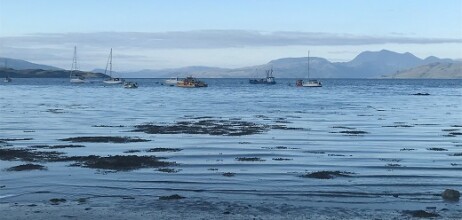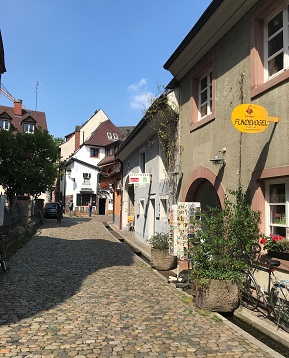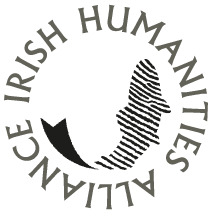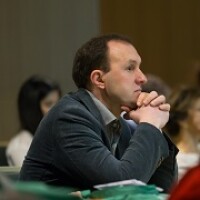My ‘busy season’ included two conferences, three project meetings, one book launch and 72 hours of German language classes.
On 12 June 2018, I arrived to the Sabhal Mòr Ostaig campus of the University of Highlands and Islands (Scotland), to join the international gathering ‘Ulidia VI / Fíanaigecht III’. The highly-welcome idea to convene a joint meeting of scholars working on the Ulster and Fenian tales was conceived at the fifth Ulidia conference in Maynooth.
In 2015 in Maynooth, I was the closing speaker talking on an intriguing figure of speech, ‘if you were to search the whole world as far as India of magnificent gold’ (da siorthasa an domhan uile gus an India oir oirdercaig), employed by Cú Chulainn in his address to Conchobhar. On the Isle of Skye, as an opening speaker I delivered a talk on the 1937 Donegal oral version of a tale about Cú Chulainn killing his son that was originally recorded from Séamus Ó Casaide, an Irish-storyteller born in 1880 in Teelin, by Seán Ó hEochaidh. Oral narratives antecedent to Ó Casaide’s version have been collected in Donegal in the 1890s by the Gaelic League activists, Seosamh Laoide and Séamus Ó Searcaigh, and the linkages between them are intriguing. The talk grew out of my two-year research project funded by the Alexander von Humboldt Foundation (2016-7) to discuss the work of German folklore collectors in the Donegal Gaeltacht in the 1930s.
Attended by scholars from Europe, USA, Canada, Japan and further afield, the conference included fifty-three talks, two round tables on the medieval Irish tradition teaching methods, book launches, website demonstrations and training workshops. A highly complex and technologically challenging IrishGen project was presented, aiming to digitise the medieval Gaelic genealogical corpus by modelling the contents of each manuscript collection as Linked Data/RDF. Renowned Gaelic artists, a singer Margaret Stewart and a storyteller Pàdruig Morrison, performed the ballad to tell the story of the death of Cú Chulainn’s son (sponsored by the Hope Scott Trust and the Royal Celtic Society). Other sponsors included MHRA, Skye Gaelic Trust, AHRC CDT Celtic Studies, the Scottish Gaelic Texts Society.
From the Isle of Skye, I drove to Rosslare, to embark on the ferry to Roscoff and then on to Quimper (Brittany) to the bi-annual colloquium of the Learned Association Societas Celto-Slavica. The society was founded in 2004 with a view to fostering connections between Celtic scholars working in Ireland and Wales and Slavic specialists in Celtic from Central and Eastern Europe. Since, more and more colleagues are involved interested in literature, language, folklore, archaeology, and history of Celtic scholarship. As Secretary and Founding Member, I have co-organised the Societas colloquia in Coleraine, Moscow, Lodz, Dubrovnik, Pribram, St Petersburg, Bangor, Heidelberg and now Quimper. The colloquium was preceded by meetings at the University of Western Brittany where we discussed our Erasmus exchange, our joint international ‘Masters in Celtic Languages and Cultures in Contact’ and its possible spin-offs in the future, and most importantly, the establishment of the international series Studia Celto-Slavica as the on-going publication of the Centre for Research in Breton and Celtic Studies in Brest. Previously, the series included conference proceedings of each colloquium published by the colloquium organisers. The start of the series as an academic journal provides us with the opportunity to welcome publications on Celto-Slavic links and connections on an annual basis.


Published: 13 Aug 2018 Categories: The Busy Season

